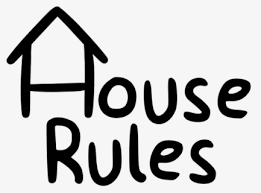 November 2020
November 2020
Not all condo rules are valid and enforceable.
Condo rules are intended to support condo living and all its benefits. They can reduce problems and irritants that come with condo living by regulating certain behaviours. This makes it easier for people to reside comfortably and peacefully in a dense urban environment.
Rules limiting noise, controlling odour, security, sanitation and common area activities generally exist for good reason.
For condo rules to be valid they must comply with section 58 of the Condo Act. This requires that they relate to the use of units, common elements or assets of the corporation. Rules must be intended to promote the safety, security or welfare of owners and property, or preventing unreasonable interference with use and enjoyment of common elements or assets of the corporation. Finally, rules must be reasonable and consistent with the Condo Act, declaration and by-laws of the corporation.
The recent legalization of marijuana in Canada created a situation where some condo corporations implemented rules prohibiting its use in conflict with its declaration or by-laws. While this was faster, easier and less costly than implementing a by-law or revising a declaration, such rules may prove to be unenforceable.
Rules supported by owners are more likely to be passed without difficulty or conflict.
 Rules can be created or repealed by the condo board at a board meeting. Once a change to rules is accepted by the board it must be circulated to owners for a period of at least 30 days. This information must include the proposed rule or change to rule, proposed effective date, confirmation of the right to requisition a meeting to vote on the rule by at least 15 percent of registered owners, and a copy of section 46 of the Condo Act.
Rules can be created or repealed by the condo board at a board meeting. Once a change to rules is accepted by the board it must be circulated to owners for a period of at least 30 days. This information must include the proposed rule or change to rule, proposed effective date, confirmation of the right to requisition a meeting to vote on the rule by at least 15 percent of registered owners, and a copy of section 46 of the Condo Act.
If owners don’t requisition a meeting within 30 days the rule becomes effective at the end of 30 days or later as communicated to owners. If owners requisition a meeting it must be held within 35 days. If quorum – 50 percent of registered owners – is not reached at the meeting or the rule is not defeated in a vote, the rule becomes effective.
Owners can requisition a meeting to vote on a rule, or amend a rule, proposed by someone other than the board. The requisition must be supported by at least 15 percent of registered owners. The rule or change is adopted if quorum – 50 percent of registered owners – is reached at the meeting and not defeated.







